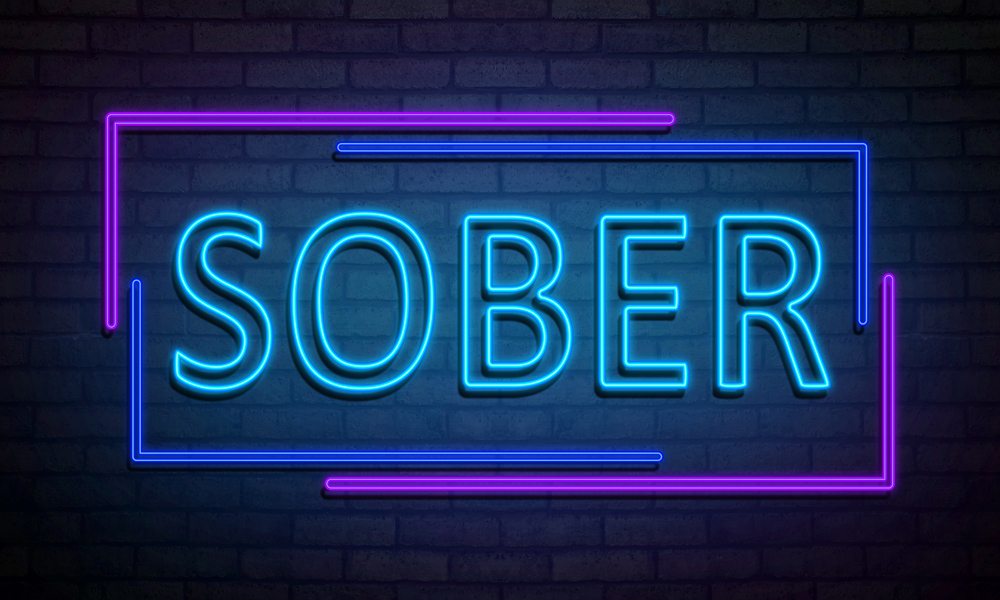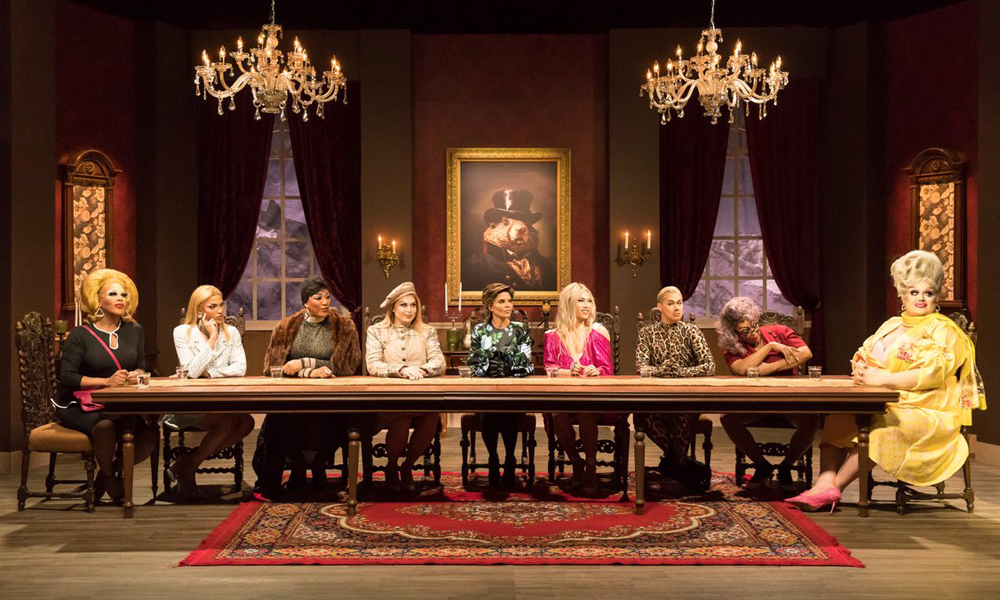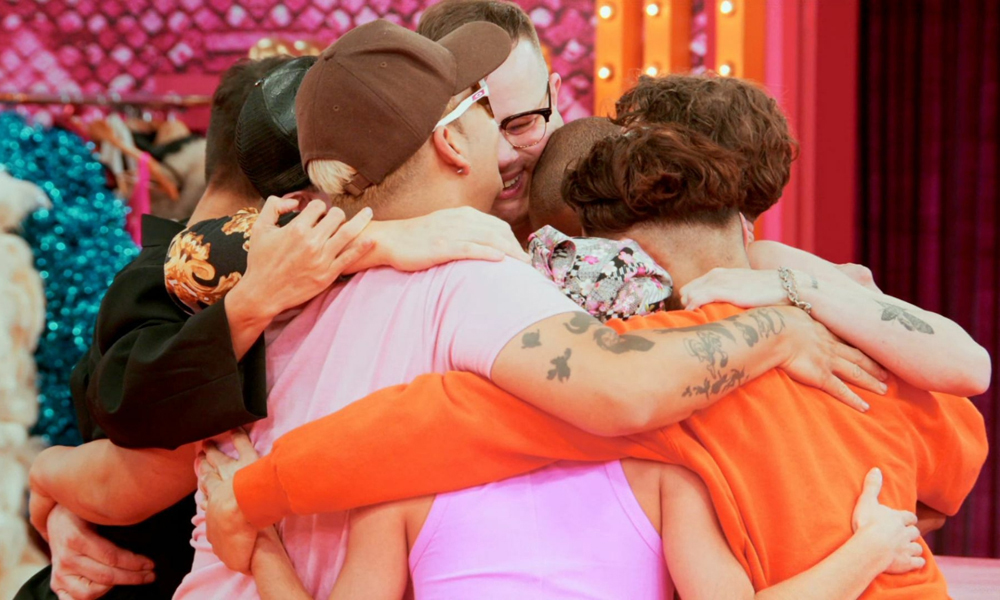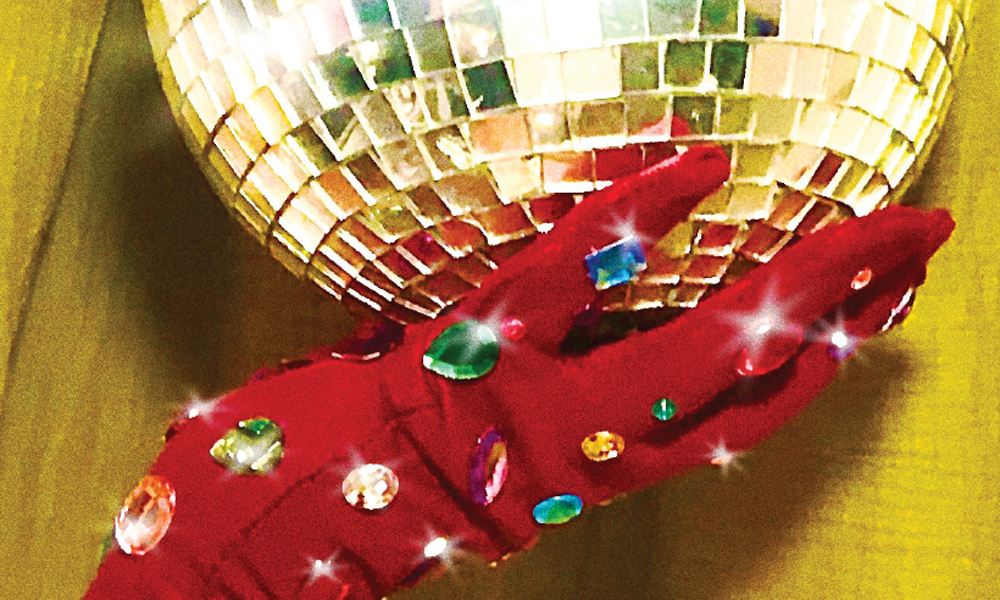In a culture of partying, where do the non-drinking gays go?…
By Kelly Small
Let’s start this discussion by giving credit where it’s due: LGBTQ+ bars have been central to queer liberation (ahem: think Stonewall, people). The “gay bar” has historically been the de facto nucleus of our communities, and a place of safety, freedom of expression, resistance and celebration for many people. Pride is the gay bar macrocosm of that. Our most visible community expression is synonymous with nightlife: flashing lights, loud music, partying, drinking, sometimes drug use, and of course the omnipresent sponsorships by major alcohol brands.
I could (if I wanted) tap into my past as a creative director working for big alcohol and turn this into an article about how those companies target queers. I could discuss how big alcohol “queerbates” us by co-opting our culture to sell booze, and how arguably unethical that behaviour is when we consider the addiction rates among queers compared to our straight and cis counterparts. Alternatively, I could (if I wanted) focus on the homogeneous communities that sometimes occupy space in a traditional “gay bar,” and how exclusionary and unsafe those spaces can be for those who deviate from the dominant culture.
But I digress.
This is, instead, an article that intends to be a platform to share a handful of experiences and hot tips for sober life from a diverse cross-section of my fellow sober queers. I want to celebrate the progress we’ve made in creating spaces and a community that may be gentler, quieter, inclusive, accessible and alcohol free, but certainly doesn’t compromise our raging queerness.
As the queer comedian, tea enthusiast and my personal messiah Hannah Gadsby once famously asked, “Where do the quiet gays go?” It’s a reasonable question, given the ubiquity of intense, alcohol-fuelled queer parties. I want to ask, Where do the sober queers go – to feel present in our queer worlds, to find likeminded folks, and to participate actively in our communities – if we don’t enjoy bar culture or it’s inaccessible to us for reasons like addiction or disability? How do those of us, for whom the age-old methods of forging queer connections just won’t work, build physical-world villages outside of our online cocoons, and begin to grow the community into a more inclusive place?
I interviewed a group of fellow sober queers in Toronto, Montreal and Vancouver, and discovered a growing community that is collectively forging a new (and substance-free) queer culture. These are the top highlights from my conversations.
Spaces like Glad Day Bookshop give queers a place to exist without centring on alcohol.
Glad Day has become a cultural hub in the heart of the Toronto village. It’s a coffee shop, a bookstore and an events space that holds a monthly gathering called Sober’ry, a social mixer featuring non-alcoholic cocktails and beers. Glad Day also serves as a performance space for drag king shows by House of Kings – shows that Sam C. says differ from more traditional drag shows in their radical pay-what-you-can accessibility, highly inclusive and non-oppressive commentary, and lack of any pressure to drink alcohol. Other safe spaces can include choirs, sports teams and support groups.
Sober life is a little easier at events held in alternative, non-bar/club spaces.
For Hez, queer events in unconventional spaces like drag nights at art galleries feel more accessible because they’re focused on a performance or activity, and not just on drinking. Hez is a fan of Queer Arcade Night at Zed80, and specifically mentions the selection of fancy soda pop that’s available there. Montreal is on its third Sober Queer Dance Party in collaboration with Pervers/City, which has a sober queer prom hosted by Queer Gatherings for teens. Toronto has a growing queer comedy scene care of talented people like Bee Bertrand. Their Pride series Queer and Present Danger, at Comedy Bar every Tuesday, features sober option cocktails and aims to make non-drinking patrons feel included and welcome.
Kaleb Robertson, a.k.a. popular drag performer Fluffy Soufflé, says they like to throw events based around shows or activities like Musical Bingo at the Gladstone Hotel in Toronto or a monthly cabaret called Fuck Shit Up. Robertson says, “I like an early event. It’s harder for me to stay out later just socializing when I’m not drinking. So I like people to be able to come out and focus on a fun show or activity, and I strive to create spaces that are comfortable and inclusive, and hopefully people don’t need ‘liquid courage’ to be there.”
And, of course, community organizations like The 519 in Toronto and QMUNITY in Vancouver consistently offer queer-focused programming such as improv, support groups and yoga that centre on well-being, family and community building.
The title/identity of ‘sober’ comes with lots of debate within the community.
Some of us believe the word ‘sober’ belongs exclusively to those in recovery from addiction. Others believe it to be an umbrella term for anyone who lives an alcohol-free life regardless of whether they’re doing it for health, disability, addiction or choice. Robertson laments that, until recently, as a non-drinker it has felt uncomfortable fitting into the queer experience. “I don’t even use the word sober to describe myself – it doesn’t feel like it fits,” Robertson says, adding, “I am currently a person who doesn’t drink. Or I say I’m taking a ‘little break.’ Currently my little break is close to three years.”
A lovely queer named Josh Hersh started Queeret out of Brooklyn, NY.
Queeret is a global movement for queer introverts that holds social gatherings that are quiet, queer and sober. Anyone can sign up to host an event in their city. A Canadian city has yet to hold an event but Vancouver is currently signed up, so stay tuned. Let’s make more of these happen.
Identity can play a critical role in our relationship to alcohol.
Theodore Syrette, a First Nations queer person, talks about the “complex history that Indigenous people and alcohol have together,” and how vigilant they feel they have to be in relation to society’s perceptions and being othered in the queer party scene. They add that “the party scene can be a collective coping of queers who have survived simply being queer. Some folks have experienced different forms of unhealed trauma, which can manifest itself in excessive partying or substance use.” Theodore says Anishnawbe Health Toronto offers counselling and programming for Indigenous people who suffer from mental health issues or have problems with addiction.
There are many LGBTQ+-specific recovery groups that support community building and sobriety for those who have struggled with addiction.
There are a significant number of addiction services that support the LGBTQ+ community – here are just a few that folks shared: Pieces to Pathways, SMART recovery meetings (which are queer-friendly and secular), LGBTQ+ NA and AA meetings, CAMH’s Rainbow Services, and the previously mentioned Anishnawbe Health Toronto.
There’s an entirely dry gay bar in Bloomsbury (UK) called Queers without Beers.
If the Brits can do it, we can do it!
Most Canadian Pride organizations aim to be inclusive of queers who don’t drink or use.
Check out Clean, Sober and Proud events or Untoxicated events connected to your local Pride.
The kink community is (most often) queer-inclusive and very often discourages the use of substances during play.
For kinky queers, this community can be a great alternative to bar spaces. Check out The Space in Vancouver and The Ritual Chamber in Toronto.
Many queers embrace the party and learn to attend events sober.
Harmony Bongat pushed through the initial anxiety of attending Vancouver queer events sober. She says, “I don’t think I’m wrong in saying a lot of queer folks suffer from a long-time history of not being accepted and wanting so badly to be part of a larger whole. I made the conscious decision to try to go to events [sober] by myself to see if I could.” The first time she did it, she says, “was so hard. I didn’t dance, and generally felt like an alien in a foreign land. The urge to drink to fit in was strong, but I knew I was stronger.” Six years later, she’s a pro. Her proud responses of “I’m sober” are most often met with congratulations, and she feels deeply connected to the queer community.
This article skims the surface of a growing sober queer culture across Canada. Despite an increasingly visible community, most of the people I interviewed lamented that there wasn’t more of a queer sober culture in their respective cities. But, as Harmony optimistically told me, “Perhaps it’s on us to start one.”
—
KELLY SMALL is an author, writer, designer and award-winning creative director. An ad industry expat, Kelly now focuses on writing about creative industry ethics, queer issues, social justice and sustainability. Kelly’s forthcoming book The Conscious Creative, published by House of Anansi Press, will be available for pre-order soon. Kelly lives in Toronto with wife Dahlia and bonus kid, Evan. Twitter: @kelly_small.






Comments
1 Comment